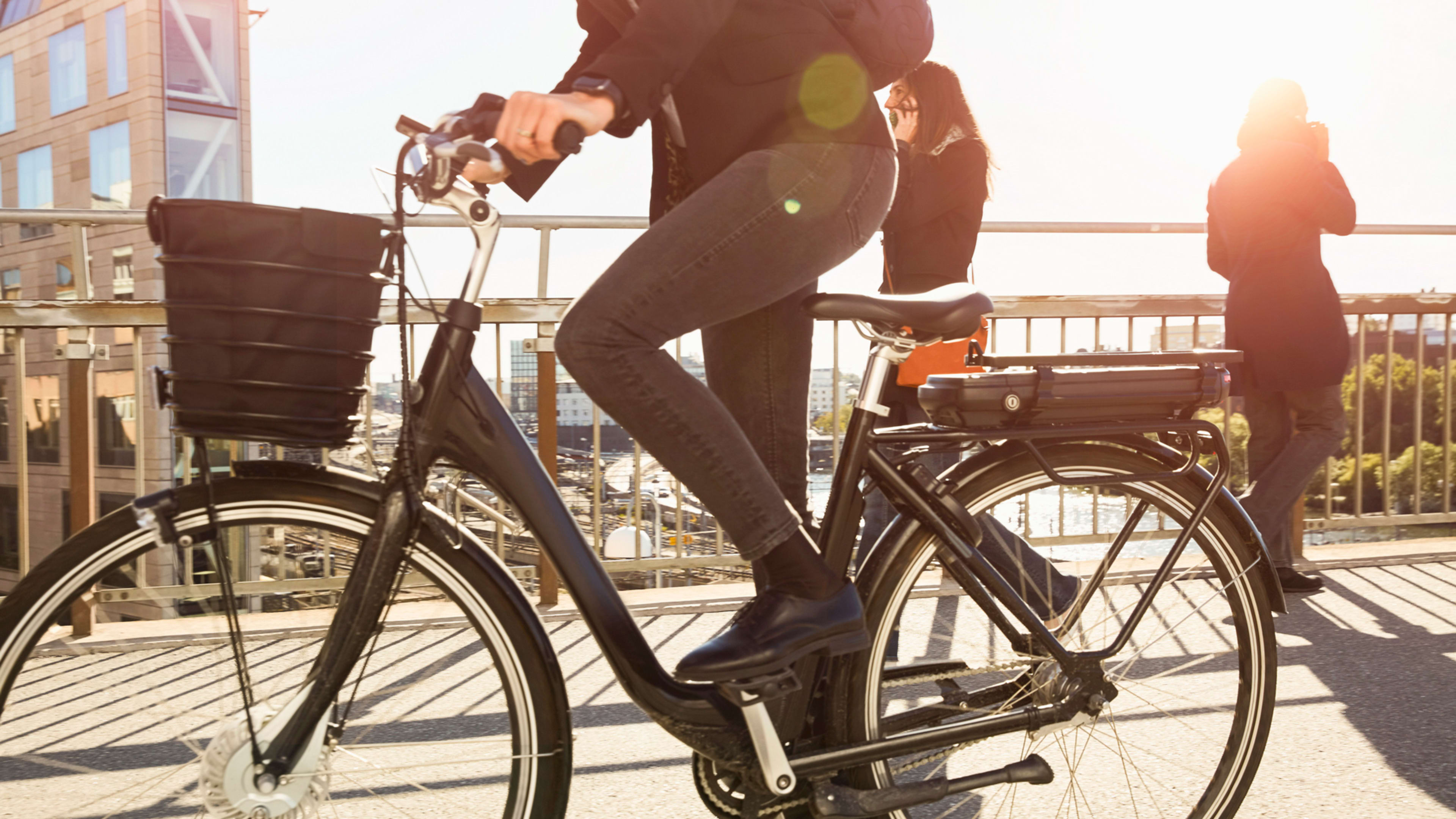As tech companies look to lure workers back to office, some are offering incentives to make the daily commute a little more tolerable. That sometimes means making it easier to commute by bicycle or, increasingly, e-bike—a mode of transport that exploded during the pandemic.
Earlier this month, Amazon announced a new bike subsidy program for its corporate employees, including options to lease a take-home e-bike or traditional bicycle with Amazon reimbursing at least some of the costs. The bike benefit, which varies from city to city, can also cover costs like using local app-based rental bike programs and bike tune-ups.
An Amazon spokesperson tells Fast Company that the online shopping and cloud computing giant isn’t yet sharing stats on how many employees are participating in the program since it’s so new but indicated it was introduced both in response to a desire to do something good for the environment and in response to employee requests.
Amazon isn’t the only company looking into getting employees out on two wheels. While some corporate bike commuter programs were naturally suspended during pandemic shutdowns as companies had employees working from home, some companies continued to offer bike-related benefits, says Amy Harcourt, cofounder of Bikes Make Life Better, which manages bike commute incentive programs. Those included online bicycle safety and maintenance classes, bicycle leasing programs, and even house calls by bike mechanics, says Harcourt, whose company’s clients include Facebook, Microsoft, Walmart, and Wells Fargo.
Even with workers only commuting to their home offices or couches, there was still plenty of interest in cycling, with people looking for a healthy and safe way to exercise during the pandemic, and workers poured into online classes on topics like bicycle safety, maintenance, and choosing the right bike, she says. Some Bikes Make Life Better customers also held events through Zwift, the virtual bike exercise and racing platform that lets you use existing bicycles as in-home stationary bikes.
She says tech companies and other businesses are increasingly interested in learning about how to use e-bikes in particular to get to work and get around their sometimes sprawling corporate campuses—a trend that began even before virus lockdowns got people rethinking their commutes.
“E-bikes were really already gaining in popularity,” she says. “I think the real driver there, no pun intended, was big companies—particularly in tech—[experiencing] astronomical growth, buying up buildings and real estate, really expanding their physical footprint.”
Sales of e-bikes, which require less pedal power to transport humans and cargo than a purely mechanical bicycle but generally don’t have the speeds, price tags, or licensing requirements of gas-powered motorcycles, have been increasing in recent years, including during the coronavirus pandemic. Fans say they’re a fun, healthy, and less-polluting alternative to cars, and in some cases a more viable option than traditional bikes.
Members of Congress have introduced legislation that would offer refundable tax credits to help subsidize individual e-bike purchases, and employers in a variety of sectors have increasingly covered bike purchases or leases as part of their benefit packages. Colorado State University announced last week it provided a group of “essential employees” with e-bikes free of charge through a grant program, and in Germany, Volkswagen’s financing unit announced earlier this year it would be working with employers on e-bike and traditional bike leasing programs.
If e-bikes continue to surge in popularity, they may finally provide a partial solution to workers dissatisfied with the hassles of both transit and automotive commutes—and a boon for employers looking to help the environment and alleviate parking concerns.
Recognize your brand’s excellence by applying to this year’s Brands That Matter Awards before the early-rate deadline, May 3.
